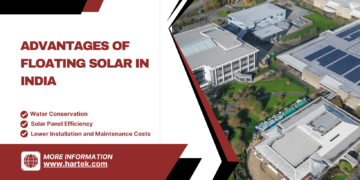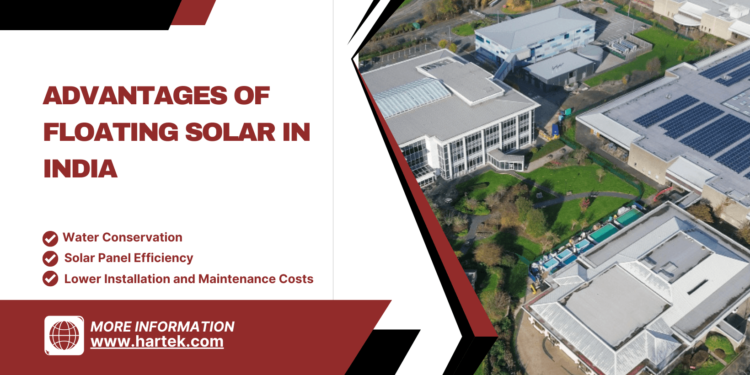
As the world is changing towards the renewable energy, floating solar power is emerging as an innovative solution that unlocks new potential for solar energy generation. By installing solar panels on water surfaces, floating solar systems can optimize the use of available resources and provide compelling economic and environmental benefits. Here are 10 key advantages that make floating solar an attractive renewable energy option:
Maximized Space Utilization
One of the primary advantages of floating solar is its ability to harness underutilized water surfaces such as reservoirs, lakes, mining pits or other synthetic water bodies. This allows for solar energy production without compromising valuable land resources. In the populated areas or regions with limited available land, floating solar can help meet rising energy demands while avoiding conflicts over land usage.
Increased Solar Panel Efficiency
The natural cooling effect provided by surrounding water bodies helps regulate the operating temperature of floating solar panels. Without being subjected to overheating like traditional land-based solar farms, floating PV panels experience reduced heat absorption and lower operating temperatures. This enhances solar panel performance and boosts electricity generation by up to 15% compared to comparable land-based installations. The additional reflected sunlight from the albedo effect of water surfaces further amplifies energy yields.
Lower Installation and Maintenance Costs
Compared to setting up solar systems on land which requires site clearing, preparation and vegetation removal, installing floating solar facilities on existing water bodies eliminates the need for complex civil works. Maintenance is also easier since panels are mounted close to water for quick cleaning.

Water Conservation
The shade provided by floating solar panels helps control water evaporation from reservoirs by 30-70%. This is crucial in arid regions and during summer months. Further, the panels block sunlight penetration which inhibits algae growth. Both factors assist with preserving water quality and quantity long-term.
Land Preservation & Aquatic Habitat Protection
By developing above water surfaces, floating solar power plant systems do not require vast tracts of agricultural or natural land. Sensitive habitats and the local landscape remain undisturbed. Preliminary studies indicate floating solar has a comparatively lower environmental impact on aquatic life versus building other inland structures. Proper anchoring design and placement can ensure minimal interference with waterbody ecosystems.
Revenue Streams
Some jurisdictions offer additional financial incentives for floating solar to encourage their uptake. Benefits like subsidies, tax credits and higher feed-in tariffs can make these projects significantly more profitable compared to traditional ground-mounted installations.
Job Creation
Like all renewable energy ventures, floating solar power plant brings associated economic development through new employment during construction, operations and maintenance phases. Every 100MW of solar installed creates about 300 local jobs according to the International Renewable Energy Agency.
Grid Stability
When combined with battery storage, floating solar plants plus storage microgrids provide on-site back-up power more securely than land-locked systems. They offer grid operators valuable flexibility and ancillary services like frequency regulation important for maintaining reliable electricity supplies.
Carbon Emissions Reductions
By displacing conventional fuel-based generation, each floating solar project helps avoid tons of CO2 and other greenhouse gases annually depending on its capacity. Over decades of operations, the cumulative impact on climate change mitigation grows exponentially.
Conclusion
In conclusion, as a rapidly scalable renewable energy technology, floating power plants delivers compelling advantages across economic, environmental and social dimensions. When paired with energy storage, it could revolutionize how communities and industries access affordable clean power worldwide. Many policies and investments are accelerating the commercialization of the novel solar platform. Floating solar’s many benefits signify its crucial role in expanding renewable capacity to meet global climate and sustainability targets.
























































